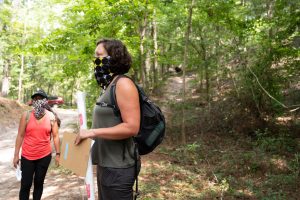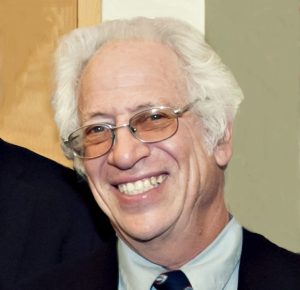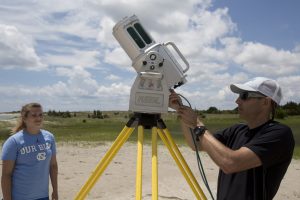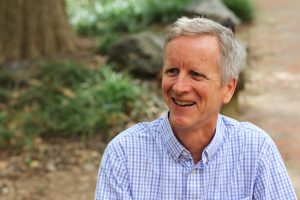Meet the Field Site Directors
September 7, 2020Engaging students in a semester of transformative hands-on learning and research are key aspects of the experiences offered at all of UNC-Chapel Hill’s field sites. A partnership among the Institute, the Environment, Ecology and Energy Program and the Study Abroad Office, the field site program offers programs in Thailand, the Outer Banks, Morehead City, and one near UNC’s campus called the Sustainable Triangle Field Site. Although most UNC classes have moved to an online format, the field sites have been able to forge ahead with stringent public health protocols to keep students and faculty safe in the field.
Directors of these field sites spend countless hours organizing logistics, creating curricula and teaching students to create meaningful opportunities for growth and exposure to potential career paths. Each site offers a variety of ecosystem settings ranging from the urban to coastal. Each site focuses on themes specific to its community or region and provides a semester-long opportunity for students to explore real-world issues through a combination of course work, field trips, group research projects and internships with local organizations. Challenges facing host communities help shape the curriculum at each site, and the results of research by UNC-Chapel Hill faculty and students are shared with community partners.
The field site directors, faculty and staff look forward to continuing their great work even with the uncertainties during this time of social distancing. Meet the field site directors.
 Lindsay Dubbs (Outer Banks Field Site)
Lindsay Dubbs (Outer Banks Field Site)
Lindsay Dubbs started working at what was once called the Albemarle Ecological Field Site as a graduate student in 2008. She became an associate director in 2012 when the field site rebranded to what is now called the Outer Banks Field Site. The field site is a multi-institutional partnership hosted by the Coastal Studies Institute and is on the East Carolina University Outer Banks Campus. She has since become the co-director along with Andy Keeler from ECU.
“The whole situation is my favorite,” Dubbs said. “I work with colleagues I respect and I enjoy working in a beautiful place. I get to interact with talented and curious UNC students while teaching and learning about this area, which is also my home.”
Using a multidisciplinary approach in her teaching, Dubbs said she takes advantage of a place-based learning environment, which reminds her of her own favorite semester as an undergraduate at a School for Field Studies field site in Mexico.
In the spring, Dubbs works on administration efforts as the associate director for the North Carolina Renewable Ocean Energy Program along with her own research. She focuses on the environmental implications of harnessing marine hydrokinetic energy from currents and waves and spends a lot of time in the Gulf Stream.
“I think as an environmental science major, students are often focusing on all of the things humans are doing to negatively affect our environment,” Dubbs said. “I think that my research turns that on its head as I am thinking about clean energy solutions and mitigating the environmental impacts of those renewable sources of energy as technologies that harness them are developed.”
In the fall, Dubbs spends the majority of four days a week directly with students. She teaches an estuarine ecology class and lab, co-teaches a capstone and runs the seminar along with overseeing internships. In the summer, she teaches a class on energy and the environment from a coastal perspective. Dubbs also works with the community advisory board from the Outer Banks to link students and residents to opportunities and activities beyond the field site.
Dubbs said she and co-Director, Andy Keeler, as well as colleague, Linda D’Anna have invested considerable time over the summer in adapting the the curriculum and housing for COVID precautions. With social distancing, Dubbs said an outdoor learning experience is in many ways better than being in a traditional classroom. They are utilizing their outdoor classroom and have moved some lectures to online recordings.
To learn more about the Outer Banks Field Site, visit: https://ie.unc.edu/OBX
Richard Kamens (Thailand Field Site)
Richard Kamens has been at the helm of the Thailand Field Site for the last twenty years—and for him, it never gets old.
“My favorite part is introducing students to Thai culture and eating with students exotic and wonderful Thai food,” he says. He also enjoys teaching environmental chemistry and working with students on their research projects—which often end up published in peer-reviewed literature.
Participants in this field site spend seven months in Thailand beginning in January. They take environmental chemistry, taught by Kamens, and three other courses in sustainable energy from Thai instructors. The semester concludes with research capstone reports.
“This past year, one group explored the feasibility of electric buses in Bangkok from an energy savings and environmental impact perspective. Another group looked at floating photovoltaics on Thai lakes and reservoirs as a source of electricity. Both of these studies are being submitted to journals,” Kamens said.
Kamens plans to introduce new research projects this year related to the evaluation of a new technique to capture CO2 to reduce power plant greenhouse gas emissions, reduce plastic waste and ocean contamination in Southeast Asia, reduce hospital waste, and the pros and cons of offshore versus onshore wind turbines for electricity generation.
To learn more about the Thailand Field Site, visit: https://ie.unc.edu/Thailand
Antonio Rodriguez (Morehead City Field Site)
After working at the UNC Institute for Marine Sciences for 15 years Antonio Rodriguez has become the field site director at the Morehead City Field Site.
Rodriguez is a coastal geologist who researches the impacts of sea-level rise, storms, and humans on coastal landscapes at the Institute for Marine Sciences. He co-teaches a capstone class and has a sedimentology research lab looking at changes to the North Carolina coastal system that occurred yearly to millennial time scales.
Rodriguez said he is looking forward to enhancing field trips and continuing to work with previous director Rachel Noble and assistant director Johanna Rosman.
**To learn more about Rodriguez and Rachel Noble, who currently are transitioning leadership roles as directors of the Morehead City field site, read more.
To learn more about the Morehead City Field Site, visit: https://ie.unc.edu/mcfs
David Salvesen (Sustainable Triangle Field Site)
Teaching classes every spring as part of the field site curriculum, David Salvesen sees his students three times a day. Getting to know them is his favorite part about his director position.
“I really get the chance to get to know students, to learn of their interests and their goals and what they want to do with their lives,” Salvesen said. “It is fun to see the students connect and gel over the course of the semester.”
Salvesen worked in environmental consulting and then abroad at the Sydney Water Board in Australia before earning his Ph.D. in city and regional planning at UNC-Chapel Hill. He has been with UNC since 2000.
Sustainability and resilience to natural disasters are the focal points of Salvesen’s own work and research. Currently, he is working with a predominantly African American community in New Bern that was struck by Hurricane Florence in order to reduce their vulnerability to future floods. He also is looking into floodplain buyouts and the process of moving communities out of flood-prone areas.
For the field site each fall, Salvesen chooses a focus project for students. In recent years, they have worked with the North Carolina Conservation Network estimating the contribution of green businesses to the NC economy, Conway South Carolina putting together community rating systems for flood insurance approval and for the town of Carrboro and looking at key places for storm water mitigation efforts.
Salvesen teaches a class called sustainable cities, a capstone class and an environmental seminar run primarily by students. He also works with two other educators who teach field site courses with the goal to create a mutually reinforcing collaboration without redundancies.
Salvesen is waiting to see how things look in the fall before choosing their next project, which may need to be remote. In accommodating the move to online classes this past spring Salvesen tasked students with investigating their own city blocks by measuring the width of sidewalks, the speed of passing cars, accounting for lighting and more and then bringing their findings together.
To learn more about the Sustainable Triangle Field Site, visit: https://ie.unc.edu/STFS
Story by Ava Eucker ’21
Ava Eucker is an undergraduate student within the Hussman School of Journalism and Media concentrating on reporting. She is minoring in Spanish and plans to center her career path around travel, storytelling and focusing on environmental work. Eucker will be taking a semester to work on an organic farm in Hawaii and will study abroad in Quito, Ecuador before finishing her degree by December 2021.



